Mailbag for October 4, 2024
Hollywood farts, all of those Beyoncé brands, where are Mira Sorvino and Ashley Judd, rules around photos of celebrity kids, surprised by gossip, and the impacts of touring on today's artists
Dear Squawkers,
Two things that made me laugh, in different ways. Let’s start with the immature shit: Will Smith farting. If you missed it, Barry Sonnenfeld, who directed Will in Men in Black, was on Kelly Ripa’s podcast and talked about the time they had to stop filming because of the stank that came out of Will’s ass. Per Variety:
“According to Sonnenfeld, the incident occurred during the scene in which Smith and Jones are in a transforming car that travels at hyper speeds and flips over. In order to film the sequence, the two actors had to be “hermetically sealed” in the pod that was being used for the car.
“There are locks to prevent it from opening and falling,” Sonnenfeld said. “I say, ‘Roll camera.’ And I hear Will Smith go, ‘Oh Jesus, so sorry. Tommy, so sorry. Baz, get the ladder.’ And you hear Tommy saying, ‘That’s fine, Will. No worries, Will. Don’t worry, Will.’ Anyway, I don’t know what’s gone on, right?”
“So we race the ladder over. Yeah, Tommy reaches his leg out as the ladder is coming over, races down the stairs. And what happened was, Will Smith is a farter,” the director continued. “It’s just some people are. And you really don’t want to be inside a very small hermetically sealed space with a Will Smith fart. You don’t even want to be sitting next to him at the Disney ranch.”
Sonnenfeld concluded, “We evacuated the stage for about three hours. And that’s incredible. No, he’s, you know, a lovely guy. Just, he farts. Some do, some don’t.”
I mean, everyone farts. But you know what? Credit to Kelly Ripa for the follow-up, because her next question was to ask if Will was on a “protein-heavy diet” which could have been one of the reasons for how potent his farts are. Barry’s answer:
"Well, I don't think he'll eat a lot of carbohydrates. I'll tell you that. I spent four or five days at his place in Calabasas, and we pretty much had boiled chicken and sliced tomatoes for five days."
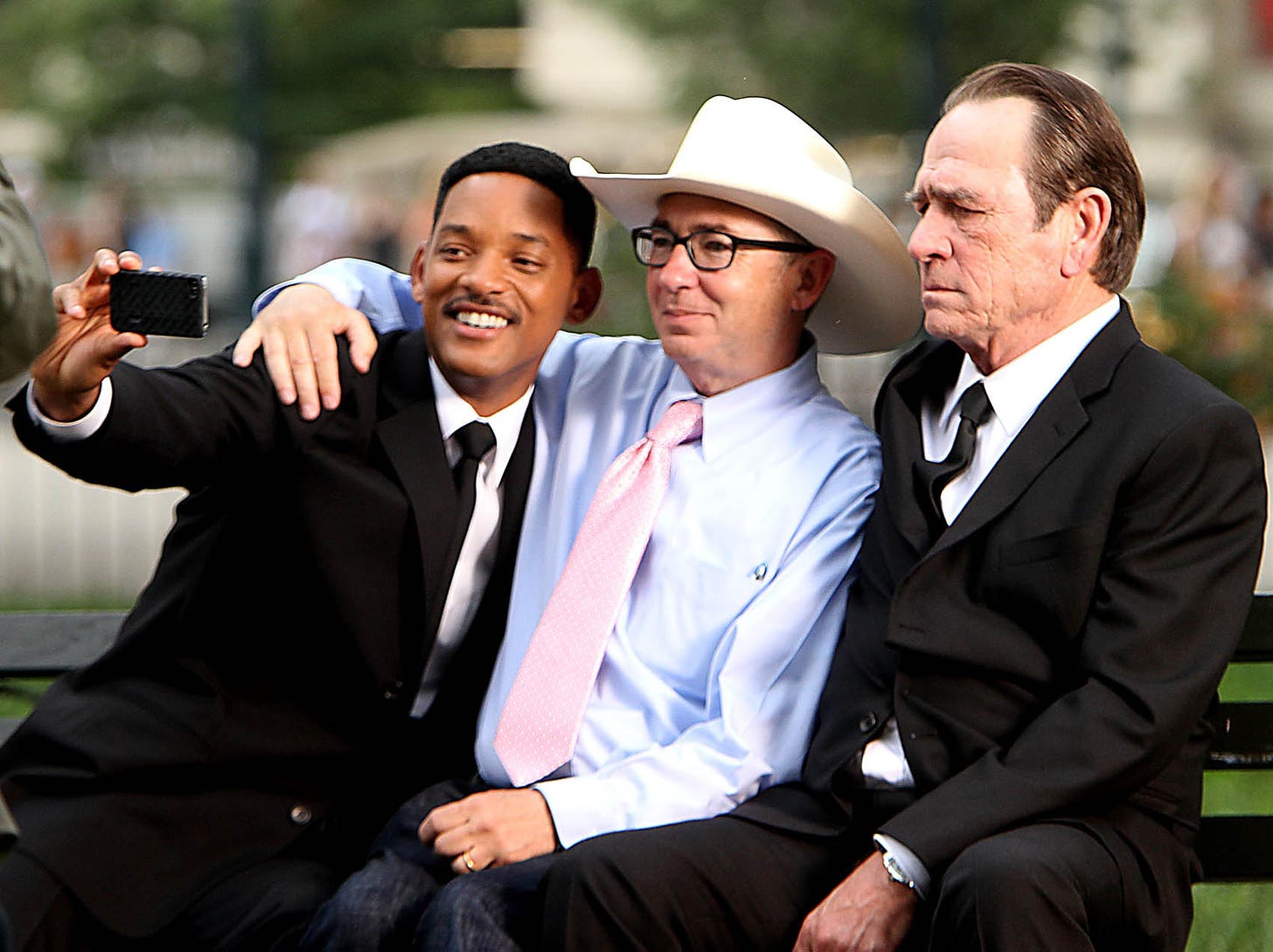
Well, exactly. Maria made a joke about people in LA avoiding carbs the other day and it’s true – for years and years now, Hollywood’s been all about protein and no carbs and I think about this alllllll the time: Hollywood farting! So many of these actors are constantly maintaining their bodies with whatever smoothie and super foods and the farting must be epidemic.
A couple of years ago, Natalie Portman was talking about working with Chris Hemsworth and how considerate he was because she’s a vegan, so he didn’t eat meat before they filmed a kissing scene. And then she went on to say, “And he eats meat like every half hour”. Which is not an exaggeration. When he has to be in Thor shape, he’s talked about eating 10 meals a day, 4500 calories a day. In his words, “…eat til you feel sick”.
Are you telling me Chris Hemsworth isn’t a monster farter?
And on top of the diets, there’s also anxiety. Celebrities are always talking about the stress of acting, of taking on certain characters, playing those emotions, and really feeling it on a cellular level in their bodies. Mental health and gastrointestinal health are linked – it’s called the “gut-brain connection”. I’m not saying that Men in Black was a particularly stressful shoot but being “hermetically sealed” in a small space with a curmudgeon like Tommy Lee Jones? My stomach would feel it, too.
So my point is…
God, I wish celebrities talked more about farting. A fart that requires a three-hour evacuation is, I agree, quite extreme. But these are people who live extreme lives.
The other story that made me laugh, in an entirely different way – BBC presenter Laura Kuenssberg was supposed to interview Boris Johnson on Thursday night. The interview was cancelled as Laura explained:
I’m not going to comment on Laura’s reputation because I live in Canada, I don’t regularly watch her interviews, I’m not informed enough on whether or not she’s known to perform her journalistic duties rigorously. The reason I find the situation funny is because… asking to see the questions in advance in entertainment reporting is, um, not uncommon. Celebrities – or their people – ask all the time. They might not ask every outlet, and that’s not to say that you have to say yes to the request, but they do ask. And it’s annoying because, no doubt, they do have a point when they insist upon more responsible entertainment reporting. But also, if we want more responsible reporting overall, then maybe respect how journalism should work, whether it’s political or pop culture.
Let’s get on with the mailbag.
Question from Anna Dobben:
So, why is Beyoncé launching all these brands? Just so curious about her business choices (from House of Deréon to Ivy Park and now Cecréd and Sir Davis and the partnership with Levi's). What's do you think her business plan is?
Lainey’s Answer:
With Levi’s, I think it’s simpler: money. She made a song called “Levii’s Jeans” and Levi’s got the Beyoncé bump and clearly, they want to squeeze more out of that unexpected bonus. As for Beyoncé’s overall business plan…
I get it that it’s not working for everyone and, to be honest, even though I’m diehard, not all of it is working for me. I was a pretty dedicated Ivy Park shopper, and still wear a lot of those pieces, but I’m not sold on Cécred because a friend of mine with similar hair type tried it and it doesn’t work on her hair. SirDavis I would love to get into but it’s not yet available here in Canada. That said, the issue is how all of these product lines fit together and whether or not they’re a good fit for her and why, at least at the moment, they might not be seeing the same kind of success that we typically associate with Beyoncé where her music is concerned.
There’s no question that Beyoncé did the research and comes to haircare with a pedigree, given that she grew up in Miss Tina’s salon. She’s also revealed her family connection to whisky and her investment in whisky tracks with what she’s been trying to do overall, reclaiming spaces where Black people have always been involved, whether it’s country music or cowboy culture or liquor. How does cultural reclamation relate to business, though?
I will not presume to be able to understand how the Queen operates so the following is just my lowly opinion. And I think that for Beyoncé, this is about ownership, about generational wealth. About building financial permanence – the kind of real power that has not been available to Black people.
“My great-great-grandchildren already rich
That's a lot of brown chil'ren on your Forbes list”
That’s a lyric from the song “BOSS”, off her joint album with Jay-Z, The Carters. Same song, on Jay’s verse, he says:
So to go back to the idea of ownership, it’s not just ownership for the sake of profit but also ownership as a way to create opportunity. And to do that at scale, to offer employment at scale, you have to have companies, plural. There’s a limit to the size of the job market you can create when you’re making music.
Has she been successful so far at the rate she needs to be? Probably not. But this, in my opinion, is her ambition. And I get why some people are put off by it – because if she realises what I think is her ambition, it will make her even more wealthy and I have seen the comments, even from her fans, where it’s like… I don’t care about all this, I just want the music and the videos. I, too, would rather have music and visuals over sneakers, shampoo, and whisky. At the same time, if we consider it in context…
Consider the current richest person in the world, Elon Musk, and how he’s managed to have more money than anyone else on the planet. In a piece for The Atlantic in 2022, calling him the “Baloney King”, Ian Bogost wrote that Elon is “an unusual purveyor of infantile jackassery, whose unfathomable wealth makes it possible, and even likely, that he’ll carry out even the most ridiculous plan”.
That unfathomable wealth happened because we, the world, bought into his infantile jackassery. Here’s an example, as referenced in Ian Bogost’s piece – when Elon was stuck in traffic one day he came up with The Boring Company, as in a company that would bore tunnels below major cities where only Telsas could drive (only to end up in fucking traffic jams FFS!).
“Looking to pay for his subterranean-car-tunnel enterprise, Musk remembered that the 1987 Mel Brooks film ‘Spaceballs’ made a joke about funding its production via sales of swag, such as lunch boxes and flamethrowers. So he made flamethrowers—barely legal, because they ‘only’ ignited a wall of fire up to 10 feet. Soon after, on Twitter, Musk denied a ‘rumor’ that he planned to manufacture, Uruk-hai-style, a zombie apocalypse to spur demand for said flamethrowers. All 20,000 units sold out.”
TWENTY THOUSAND Elon Musk branded flamethrowers SOLD OUT. Seriously, I would rather buy Beyoncé shampoo, that might not work all that well on my hair type, than a fucking flamethrower that funds Elon Musk’s bullshit. And yet. And YET.
At the end of 2023, Beyoncé’s net worth was valued at around $800 million. Elon Musk’s net worth is currently $260 BILLION. If we have a problem with Beyoncé wanting to get richer, we should at the same time, and with the same energy, have a bigger problem with how Elon Musk got so much richer. And that’s a conversation about unchecked capitalism.
Back in 2016/2017, I spent a year teaching a fourth year Arts & Humanities class at Western University. During a class in the first semester, while discussing gatekeeping in Hollywood and how to best diversify the industry and include more voices, my students debated the impact of two forms of change on culture: reform or revolution.
In simplest terms, reform is changing a system from the inside, while revolution is a complete overhaul, you blow it all up and start over. Beyoncé has said that she wants to be “revolutionary” and in many ways, especially in how she’s approached her art and the various forms it has taken, she has been revolutionary.
But where her business goals are concerned, she’s actually more of a reformist. Beyoncé is a capitalist and as one of her fans, I would say that where she differs from Elon Musk is that she’s also an idealist, and she’s trying to reconcile the two by using the benefits she gains from capitalism to expand its accessibility to marginalised communities. Anti-capitalists would argue that this is impossible because modern capitalism can only exist on the exploitation of labour and selling the illusion of wealth access to those who will never truly accumulate it. But BK from Texas actually did, so I’m not sure she would accept the idea that reform isn’t possible. So what’s the business plan? Keep building …to a point. Building capital and then buying, buying big. That’s the capitalist way.
Question from Phyl:
Sometimes I wonder what kind of career Ashley Judd would have had if not for Weinstein. Do you think she’ll ever make a comeback? Where’s Mira Sorvino, another person with potential that faded away.
Sarah’s answer:
There’s a real chance one of them might have ended up in Lord of the Rings, which was a huge part of launching Cate Blanchett to international stardom in the early 2000s, but other than speculating on that kind of near-miss moment, it’s hard to know for sure how a career will pan out. Both Judd and Sorvino continue to work—Mira Sorvino has five projects in post-production, Judd is set to play anti-queer activist Anita Bryant in a biopic that promises to boil all our blood—but there is little doubt that Harvey Weinstein’s punitive blacklisting in the 1990s hurt their careers. He didn’t ruin them, but he did stall their momentum, and momentum, once lost, is almost impossible to regain, no matter the reason for the slowdown.
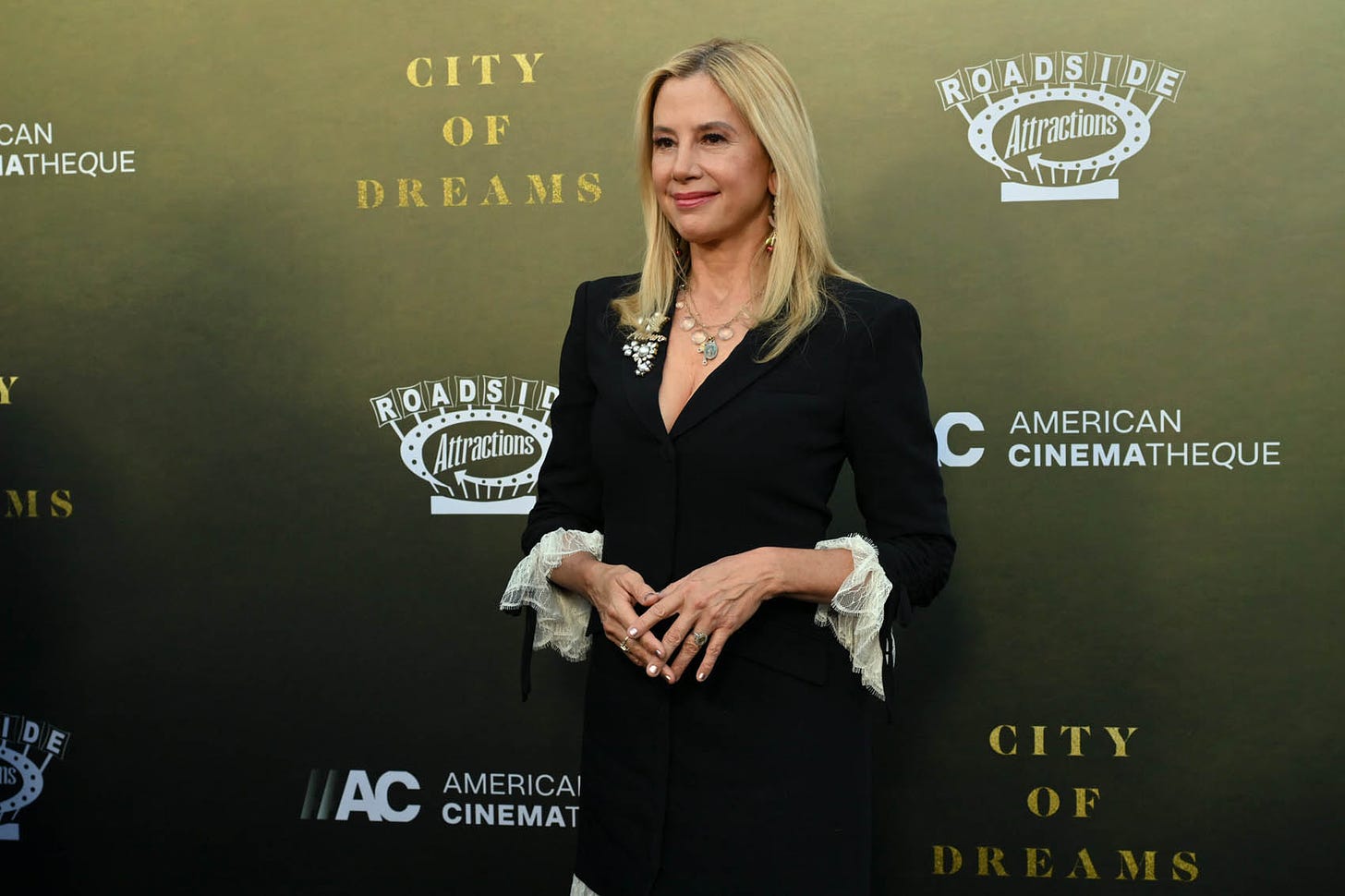
But there are other factors at play. Sorvino, for instance, has four children, the youngest of which was born in 2012, the eldest was born in 2005. During the mid-to-late 2000s, when she started having children, Sorvino slowed down, and again, momentum, once lost for ANY reason, is hard to regain. Judd, meanwhile, had some high-profile flops in the early 2000s, such as rom-com Someone Like You and thriller High Crimes, which contributed to her own late 2000s slowdown. And not for nothing, Judd made her name on the kind of mid-budget films that died in the 2000s. As those kinds of roles dried up, she got shunted into playing moms in franchise (Divergent, Dolphin Tale), and wives in Gerard Butler movies.
If you take Weinstein out of the equation, I think both these women would face the same career struggles. They were both negatively impacted by the death of the mid-budget film, and at least on paper, it looks like Mira Sorvino prioritized her family over her career, for a while, anyway. Again, she has a lot of projects in the offing, which suggests now that her youngest kids are a little bit older, and presumably a bit more independent, she’s picking up the pace. And Judd suffered that terrible leg injury a few years ago, the kind of thing that changes a person’s trajectory, at least for a while (Jeremy Renner’s career is never going to be the same, either). She lost some time here in the 2020s to recovery, though she, too, is back at it on set.
Are they working consistently in top-shelf stuff? No. But Mira Sorvino and Ashley Judd ARE working. And for actors, consistently booking work IS successful. Maybe if Harvey Weinstein never turned his eyes toward them, one or both of them would be among the biggest stars in the world today, and we’d be debating their chances in the Oscar race. But it’s just as likely he was just one pockmark among many in the factors that shape actors’ careers. I don’t want to downplay the impact and influence he had, but the death of the mid-budget movie is also a huge factor. The actresses who survived that, remaining on top from the 1990s to the 2020s, are the ones who, almost unanimously, launched their own ventures, such as production companies or, like, Goop. Others of their peers, like Laura Dern, have seen their careers ebb and flow over the years. It just takes the right project hitting at the right time to propel you back to the top.
Question from Patty from a daily chat thread:
I know photogs are not supposed to take pictures of celebrity kids, but what are the lines of when they can and when they can't? Ryan and Eva took their daughters to the Olympics, and Eva thanked the photogs afterwards for not showing their daughters. EmRata and Kylie take their kids to fashion shows, kid pics everywhere. John Krasinski and Emily Blount take their kids to tennis matches, sitting front row, pics are taken and published. So do the photogs have a list of whose kids they can take pics with, do they ask them before hand, how does it work?
Lainey’s Answer:
There’s no official list and there are a lot of paps who don’t give a shit about how celebrities feel about their children being photographed and they’ll do it anyway. It’s been over ten years since Halle Berry and Jennifer Garner lobbied for legislation that would result in tougher penalties for photographers crossing the line with children of celebrities. Over the last decade, I don’t think we’ve seen fewer pap shots of kids, but also, over the last decade, we’ve also seen so much more shots of kids on social media, both celebrity and civilian. As some celebrities are trying to limit how much access the world gets to their kids, non-celebrities are out here trying to turn their kids into celebrities. So it’s a bit confusing how these laws are enforced and whether or not more legislation needs to be considered to account for the influencers who have become celebrities and their content involves their children. Sarah posted about this recently and when you consider the example of Ryan’s World, you’ll appreciate how needed this is. Ryan’s been on YouTube since he was three years old. He’s now 12 and he’s worth something like $100 million.
To go back to the paps and how it works, most of the time it’s a case-by-case basis and also country by country. In general, it’s stricter in the UK, for example, than it is in the US. And when it does happen in the US, there isn’t so much of a formal agreement as there is an unofficial negotiation. For example, I assume for Ryan Gosling and Eva Mendes and their children at the Olympics, there would have been a discussion between the couple and the photographers that Ryan and Eva would give up shots of themselves on the condition that their children not be included. When they were at the Olympic events indoors, only officially accredited photographers were allowed at the venues, like those who shoot for Getty. And in all of those shots, the kids’ faces have been blurred. But again, that’s a conversation that likely happened between their reps and the photo agencies.
Question from Sara:
Is there a gossip story you have covered that surprised you by how much interest it generated? Or the opposite where a gossip story you thought would be big ended up not generating a lot of interest in the wider culture?
Sarah’s answer:
Speaking of Weinstein, I was shocked at how big MeToo became, and that Weinstein ended up in criminal court. Repercussions? I hardly knew her! Similarly, I didn’t expect people to care about the labor strikes last year as much as they did. I just didn’t think the wider culture would care about sexual harassment or workers rights because, in my experience, people just don’t care much about those things. At least, they didn’t. In a sign of forward progress, people do, actually, care a lot about those things.
In the early days, I really thought the Weinstein story would just be a Hollywood story about a power player’s disgrace, but it quickly blew up so big other industries were impacted, too, and wider conversations about workplace harassment and sexual assault started happening. Anecdotal, but I know SO many men who had their eyes opened to the everyday realities women live with regarding harassment. It doesn’t mean everything is hunky dory now, but I do think that became a real cultural moment that forever shifted cultural perception on sexual harassment and assault, at least in the workplace. And we have a VFX union now! And it’s still growing! Again, I know things aren’t perfect, and there are active pushbacks against the gains made in gender equality and worker rights, but those are two stories I didn’t expect to become huge stories, but they did.
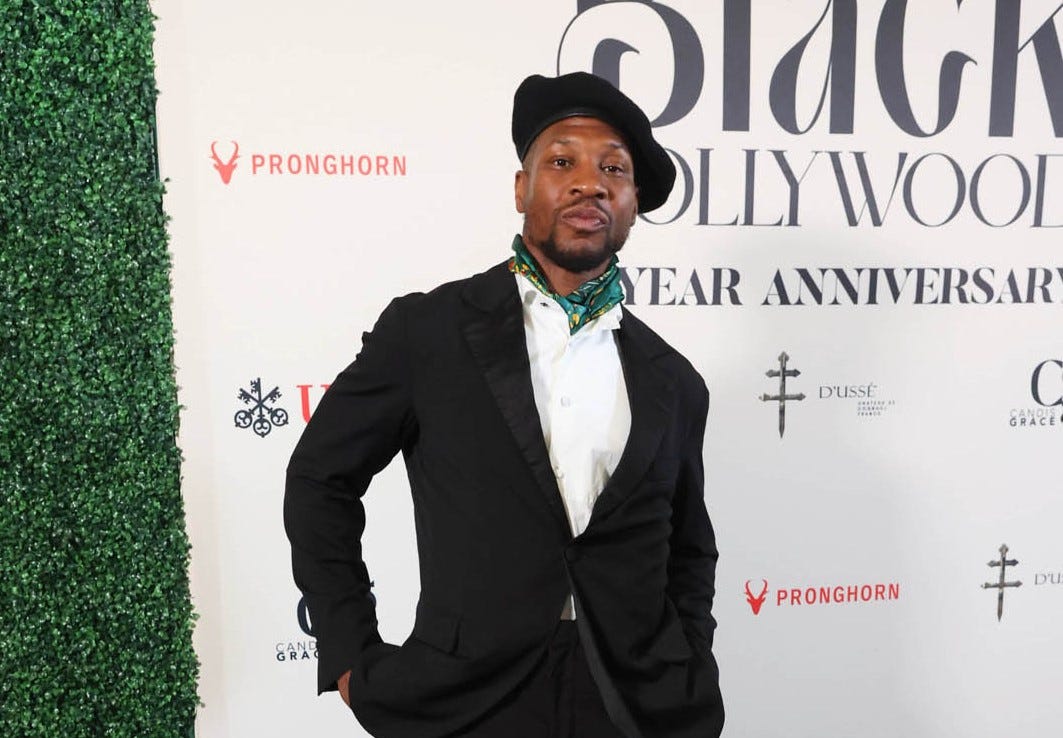
In terms of stories that I thought would be bigger—Jonathan Majors. SO many people don’t realize the reason he just disappeared is because he was convicted of assault and harassment. Again anecdotal, but the people I know who don’t follow entertainment news had no idea that’s what happened to him. A lot of them thought Marvel just ditched the Kang storyline because it wasn’t working. (Please, like they’d pay for RDJ if they didn’t HAVE to pay for RDJ.) In a sign of the distance that we still have to go, a man assaulting his girlfriend is still met with a shrug by a lot of people. Domestic violence is still largely seen as a problem for the home, not society at large. Maybe that will be the next revolution.
Question from Myra:
Sabrina Carpenter did an interview on Apple TV where she talked about how she loved touring as it helped her connect with her long-time fans. I noticed more female pop stars - Ariana, Beyonce, Taylor - seem to embrace touring more than their male counterparts. They seem to love it. Whereas Justin Bieber and Shawn Mendes, and maybe even Bad Bunny? come to mind among those who describe touring as detrimental to their mental health. Why the divide? Do women get more support than men on these tours or is something else at play?
Lainey’s Answer:
I don’t think there’s a divide here. Miley Cyrus made headlines last year when she talked about not wanting to tour and how it’s “not healthy” for her. Chappell Roan has cancelled shows lately because she’s prioritising her mental health. Adele has also spoken candidly about how touring is not for her and given how successful her residency has been, she may never tour again. And then there’s Barbra Streisand who didn’t tour for 27 years (!) after 1967 when she forgot the words to one of her songs due to anxiety.
Touring is not for everyone, and it doesn’t mean that those who tour are tougher, it’s just about how each individual receives and processes that kind of stimulation. Here’s how Miley explained it:
"There’s a level of ego that has to play a part, that I feel gets overused when I’m on tour and once that switches on, it’s hard to turn it off. And I think when you’re training your ego every single night to be active, that’s the hardest switch for me to turn off.”
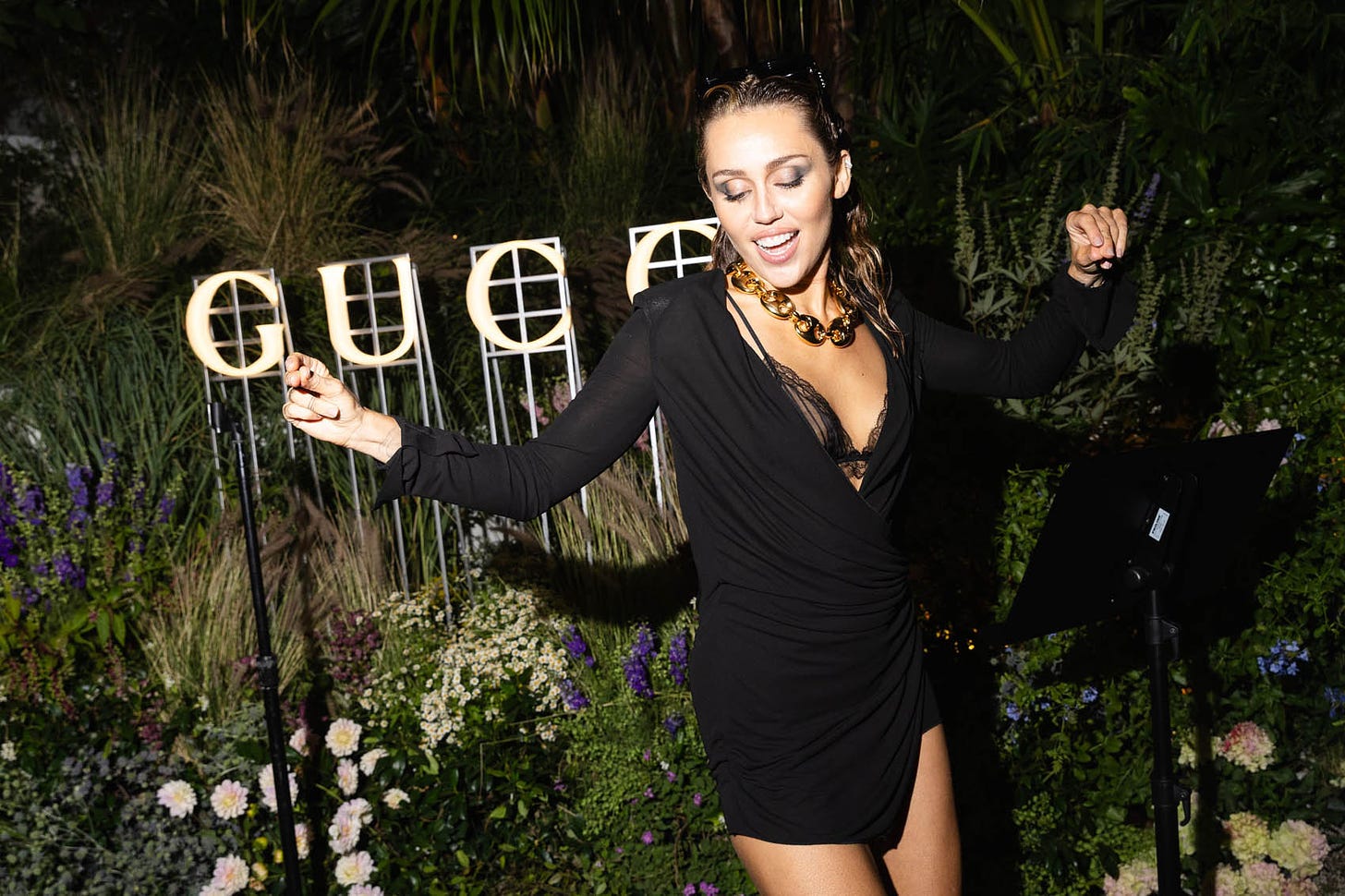
Of course, it’s not about the ego for all artists but what’s common among all artists on tour is the high. Artists experience major swings in emotion on tour. For two hours, a tsunami of adulation is washing over you, and you have to be grateful for it, and feel like you deserve it, and then you have to find a way to come down from it, but not for too long because a few hours later you have to do it all over again. And then when the tour is over, there’s the recalibration – after months and months of a steady injection of positive feedback right up in your face, does your mind become accustomed to it? Even … addicted to it? If you are dependent on it, does it shape your identity and your relationship to yourself?
And that’s just emotional considerations. There are also physical considerations. Sleeping in a different bed every few nights. Time zones are constantly changing. Your vocal chords are fried. Your body is subjected to a two-hour non-stop workout night after night…
You have to really love it for it to be fun. And it’s not fun for everyone. The ones who don’t have fun doing it are just now, in this generation, able to admit that it’s not fun. So it’s not necessarily about support. It can be as simple as how they want to spend their time.
Thanks for all your questions. And thanks to all of you for chatting every day. It’s thrilling when the notification goes blue with new comment alerts. Should we be creating new chat threads on weekends, too? Let us know!
Keep squawking and keep gossiping,
Lainey and Sarah





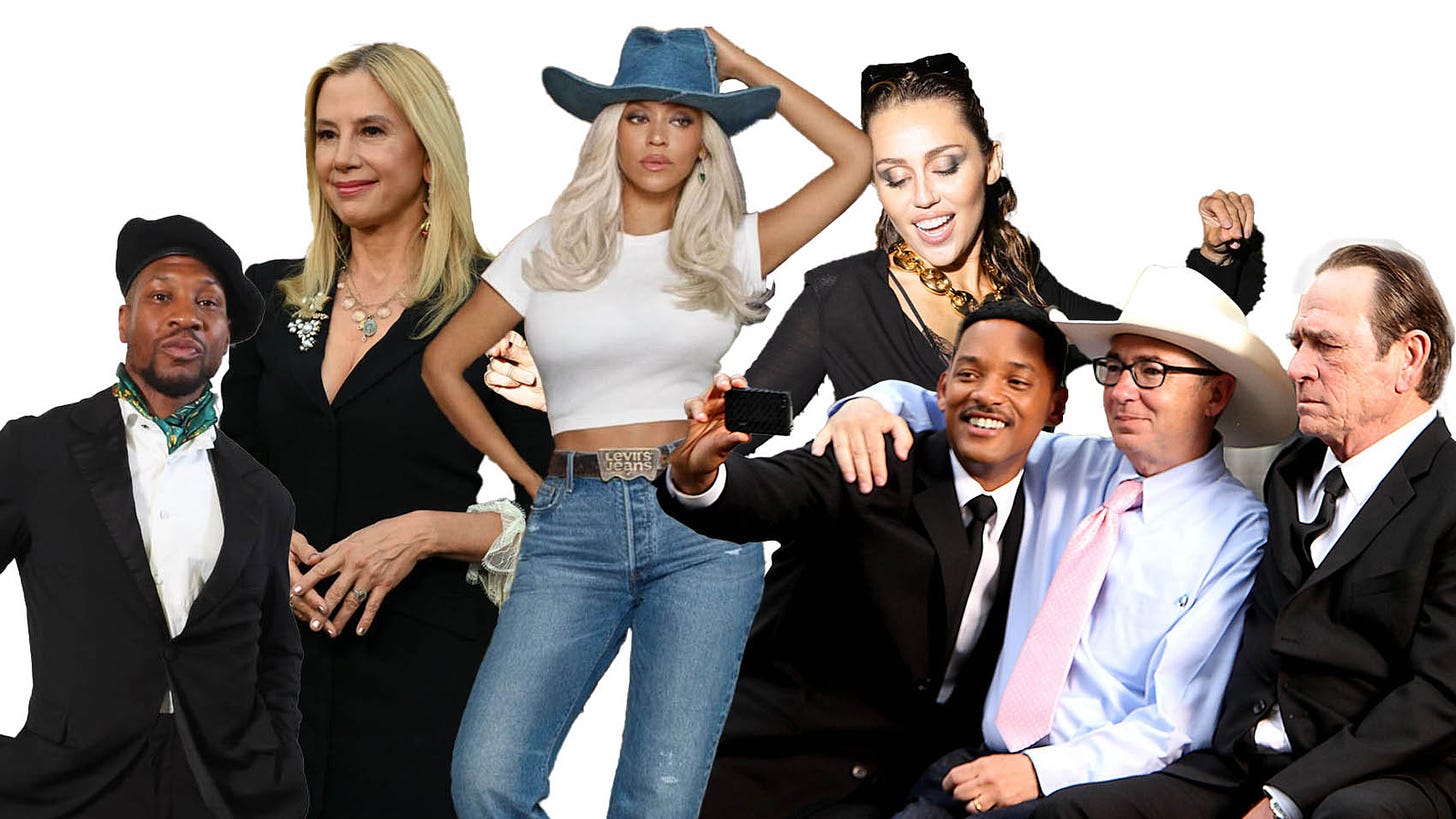
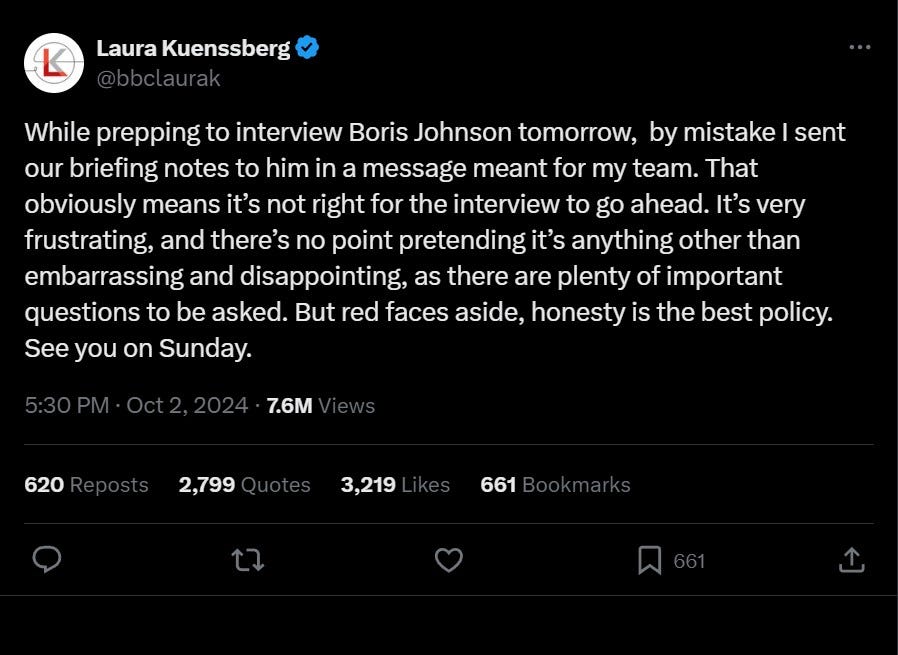
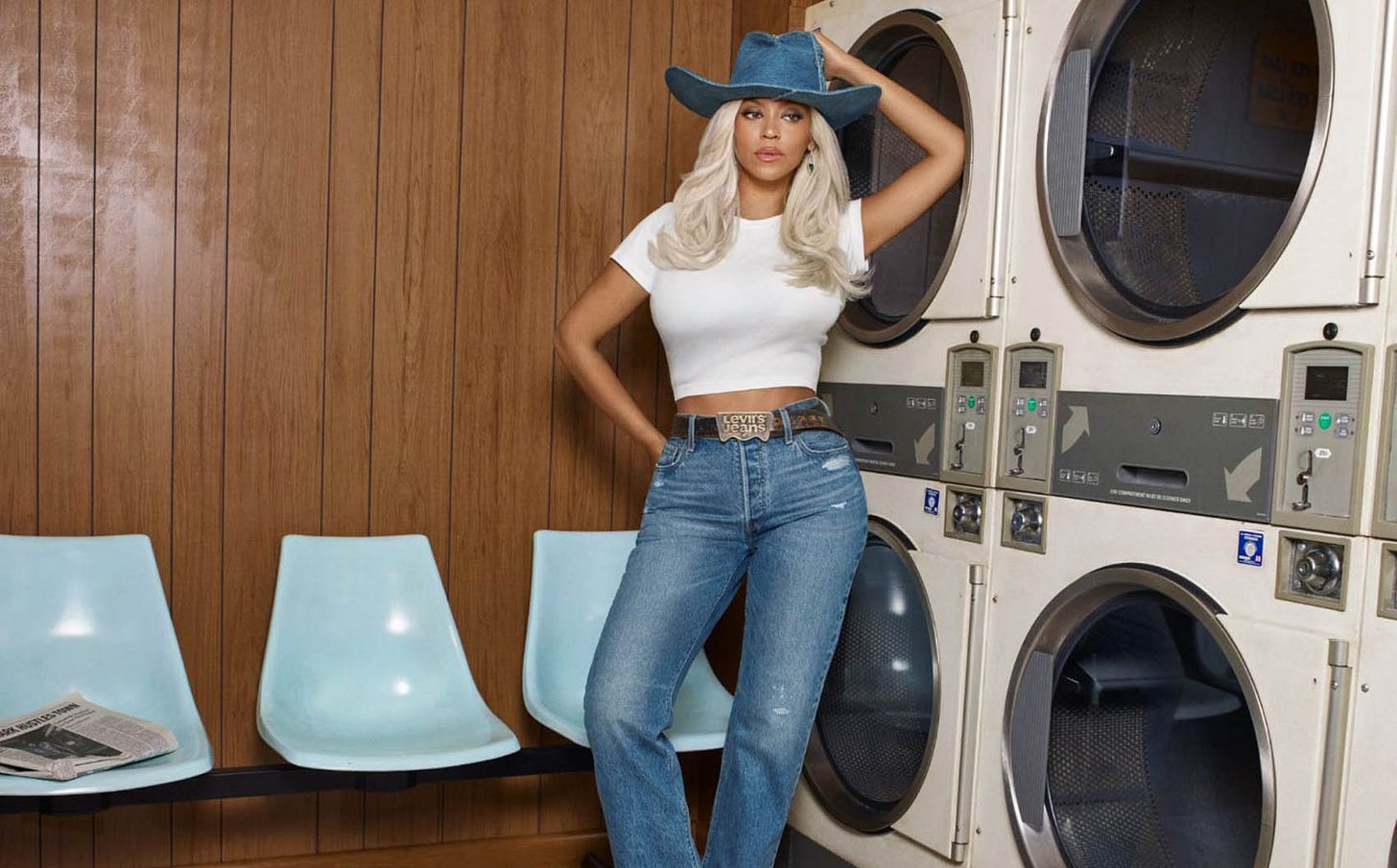
I think the problem with Beyoncé’s businesses continues to be that you have to hustle for a celeb brand to be successful. Selena and Rihanna are out here SELLING. Beyoncé wants to maintain an air of mystery and remove - that is not compatible with today’s market.
I think eventually she’ll have to decide if she wants to give it up and consistently put herself out there to make these brands work, or become a silent investor who builds & owns brands that don’t need her face on the marketing. But watching these various ventures launch and fade over the years just makes me cringe; it’s so at odds with her artistic image of exacting excellence.
To give some British person context: Laura Kuenssberg is largely known in the UK for her perceived pro-Tory biases. She's been punished before for breaking the BBC's impartiality guidelines and is often referred to by other journalists as a prominent example of access journalism. When this story broke, "inadvertently" (complete with the quotes) started trending on Twitter, such is the scepticism around her being in any way impartial towards the Tories.
RE: Beyonce, I think it's really interesting how she's so keen to let the music speak for herself while still doing so much in terms of side-hustles, ad campaigns, etc. That's not to say that she should start shoving Cowboy Carter songs into the Cecred ads or anything, but usually celebs create businesses like this as brand extensions (see Ryan Reynolds sticking his gin in every movie he does.) A lot of female celebrities are usually seen as the faces of companies and not the brains behind them so I wonder if this is her way of re-centring herself as a bona fide magnate.